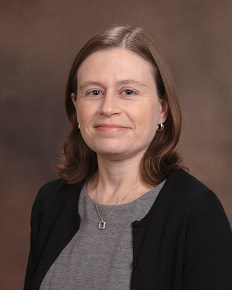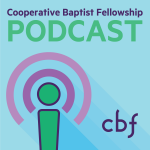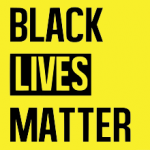By Laura Stephens-Reed

I have seen the classic video Not in My Church so many times that I could perform it as a one-woman play. (If you have not had the pleasure, it is the dramatization of a minister’s victimization of a church member and the varied responses from affected parties.) Don’t mistake my cynicism for opposition; I wholeheartedly believe it is essential that clergy carefully consider what spiritual authority we have and how we should wield it. I have heard too many stories about parishioners – children and adults – being groomed by their pastors for sexual gratification. Even after the physical trauma ends, the psychological damage lingers, leading to any number of issues both for the survivor and for the system that protects the perpetrator-pastor.
The thing is, as a woman in ministry, I’m caught in a double bind. My theology and ethics prompt me to think first of the people in my care. So I have followed safe church policies when working with children and youth. I have rarely engaged in one-on-one interactions with church folks by text or social media. If I’ve had a closed-door conversation with someone, I have made sure we were visible through a window. If this was not possible, I have told another church staff member where I’d be, with whom I’d be talking, and when the staff member should expect me back.
All of these measures honored the people I ministered to and maintained my reputation. None of them protected me from being slapped on the bottom, hugged (often much too long) and stroked against my will, or talked to in sexualized ways, whether by church members or supervising ministers.
Yep, somehow I have been put in charge (rightly) of setting boundaries that ensure others’ safety and (wrongly) of figuring out what to do with unacceptable behaviors directed at me. My dual identities compound the problem. As a woman I am supposed to be polite and accommodating, not a wave-maker. As a clergyperson I am supposed to meet people where they are, brokenness and all. And as a clergywoman I am supposed to be grateful that I was called to a church position – any church position – since so many congregations “just aren’t ready” for female leadership.
These supposed tos are a recipe for silence, shame, and the perpetuation of soul-crushing patterns.
This week my Facebook feed filled up with stories around the hashtag #MeToo. Maybe yours did as well. The accompanying explanation was that “if every person who has been sexually harassed or assaulted wrote ‘Me too’ as a status, we might give people a sense of the magnitude of the problem.” When I shared one of my experiences, a couple of clergywomen replied that all their instances of harassment had been in a church setting. I saw similar notes in the posts of other female ministers.
We can do better. Here are some ways we can promote change, not just for clergywomen but for everyone.
Among those who feel at risk: Create circles of care. Find other people who will listen to you, affirm your worthiness and strength, and embolden you to call out harassment and assault. Do the same for them. There’s inner strength in numbers.
Among those who don’t feel at risk: Pay attention and speak up. Sexual assault and harassment are so pervasive that they go unnoticed and unchallenged. That’s got to change.
Among everyone, on behalf of clergywomen: Accept women in ministry as the norm. We’re in ministry, we’re not going anywhere, and we’re highly capable. And once we don’t feel like our control over our vocations is so tenuous because others doubt our abilities, we’ll won’t be so hemmed in by our circumstances that we can’t call out bad behavior.
Among everyone, on behalf of any past, present, or future target: Make the church a space to name sexual harassment and assault as evil. Verbal and physical violence against any child of God is wrong, no matter who the perpetrator or the survivor is. Let’s get over our weirdness around bodies and sex to name this truth and believe and support those affected.
If we can make these shifts, maybe one day #MeToo will be a meme about how each of us is part of a church that recognizes and safeguards the divine image in every one of us. Dear God, make it so.
Laura Stephens-Reed is CBF Peer Learning Group Regional Director for Alabama, Florida, Georgia, and South Carolina. She also serves as a clergy coach and congregational consultant.










